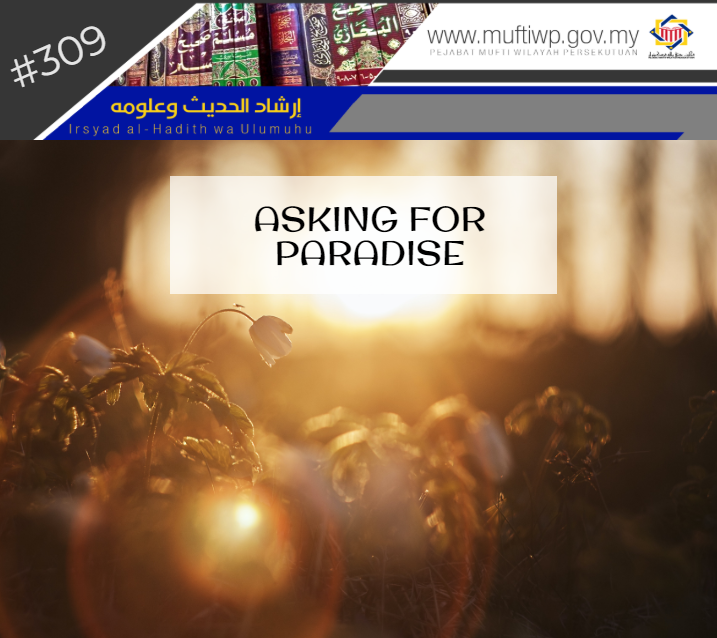Question:
What is the source for this du’a?
إِلَهِي لَسْتُ لِلْفِرْدَوْسِ أَهْلَا
وَلَا أَقوَى عَلَى النَّارِ الْجَحِيمِ
فَهَبْ لِي تَوْبَةً وَاغْفِرْ ذُنُوبِي
فَإِنَّكَ غَافِرُ الذَّنبِ الْعَظِيمِ
“O Lord, I don’t deserve a place in Your paradise, but I can’t bear to enter your Hellfire. Accept from me my repentance and forgive all my sins. Verily, it is You the Forgiver of all great sins”
Answer:
Alhamdulillah, praise and thanks to Allah for the countless blessings He has blessed us all with. Blessings and salutations to the Prophet Muhammad PBUH, his wives, his family, companions and all those that follow his teachings to the day of judgement.
We are encouraged to always make du’a asking to enter Allah SWT’s paradise. However, Allah SWT set that this paradise will only be resided by His believing and righteous slaves. This is stated in the Quran:
وَالَّذِينَ آمَنُوا وَعَمِلُوا الصَّالِحَاتِ أُولَـٰئِكَ أَصْحَابُ الْجَنَّةِ ۖ هُمْ فِيهَا خَالِدُونَ
But they who believe and do righteous deeds - those are the companions of Paradise; they will abide therein eternally.
Surah al-Baqarah (82)
Sheikh al-Maraghi in his tafsir states that this verse indicates that those who believe in Allah and His Prophets, believing in the Day of Judgement, doing good deeds, fulfilling obligations and leaving all evildoings are those who are qualified to enter the paradise as the reward of their obedience, reliance and honesty in Allah in obscure or clear situations. This is also the dalil that true faith followed by good deeds are the conditions to enter the paradise. [See: Tafsir al-Maraghi, 154/1]
Referring back the above question, we state that the du’a or dhikr is not found in any accredited hadith books. However, Imam Abd al-Wahab al-Sha’rani once stated that whoever practices and recites it each Friday, he will undoubtedly die in Islam. This is mentioned by Imam al-Dimyathi in his book. [See: Iaanah al-Tholibin, 106/2]
Besides, indeed, we are encouraged to always ask to Allah SWT to be placed in the highest level of paradise. This is in accordance with a sahih hadith:
- Narrated by Abu Hurairah RA, where the Prophet PBUH said:
فَإِذَا سَأَلْتُمُ اللَّهَ فَسَلُوهُ الْفِرْدَوْسَ
"So, if you ask Allah for anything, ask Him for the Firdaus,"
Sahih al-Bukhari (7423)
In addition, du’a is a great act of worship because it connects us to Allah SWT directly. Besides, in supplicating, there is flexibility in which it is not necessary to make du’a with the du’a taught by Allah SWT and the Prophet PBUH only, although the best of du’a is from these two sources. We are also permitted to make du’a with any du’a, as long as its meaning is good and it does not contradict with Islamic teachings. Besides, among the important matters is the ethics, conditions and guidelines in supplicating needed to be preserved is for the du’a to be of high quality.
Conclusion
In conclusion, a Muslim should always recite dhikr with his tongue which leads to the remembrance of Allah SWT no matter where he is. This is because there are many advantages and virtues to be accomplished by those who always recite this dhikr as mentioned in the Quran and the Prophet PBUH’s Sunnah. Among them is the saying of Allah SWT in the Quran:
وَالذَّاكِرِينَ اللَّـهَ كَثِيرًا وَالذَّاكِرَاتِ أَعَدَّ اللَّـهُ لَهُم مَّغْفِرَةً وَأَجْرًا عَظِيمًا
“And the men who remember Allah often and the women who do so - for them Allah has prepared forgiveness and a great reward,”
Surah al-Ahzab (35)
Besides, there is an encouragement towards this dhikr in a hadith narrated by Abi Musa RA:
مَثَلُ الَّذِي يَذْكُرُ رَبَّهُ وَالَّذِي لاَ يَذْكُرُ مَثَلُ الْحَىِّ وَالْمَيِّتِ
“The example of the one who celebrates the Praises of his Lord (Allah) in comparison to the one who does not celebrate the Praises of his Lord, is that of a living creature compared to a dead one,”
Sahih al-Bukhari (6407)
Lastly, let’s ensure our tongues are always used to remember Allah SWT so that we are grouped with those who always receive forgiveness and rewards from Allah SWT. Amin.
Wallahua’lam.


